Yesterday I’ve attended Conference: Slaves of Fashion: Archives, Art and Ethics. It was a one-day conference organized by the School of Histories, Languages and Cultures, Liverpool University and National Museums Liverpool. The event was organized to accompany the special exhibition at Walker Art Gallery by The Singh Twins.
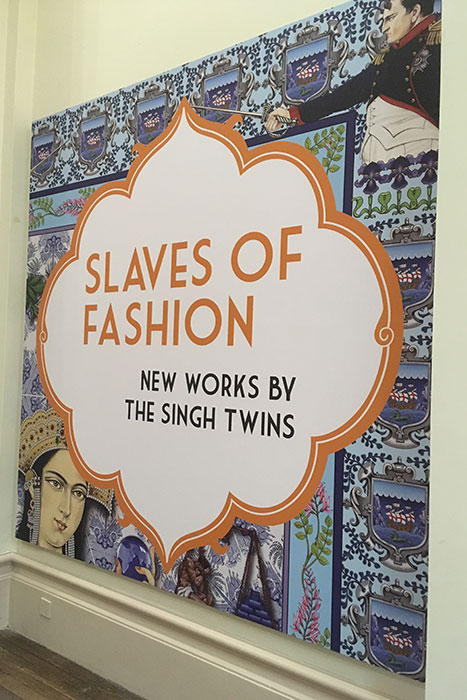
I booked my ticket a couple of months ago. I wasn’t familiar with The Singh Twins’s work, as I prefer the classical art instead of contemporary. The reason why I wanted to go to the conference was the subject: Slaves of Fashion. There are, obviously, two ways of thinking at this, as we are slaves to fashion and we live in a consumerism world, or to think of the slavery that was and still is involved in the fashion industry.
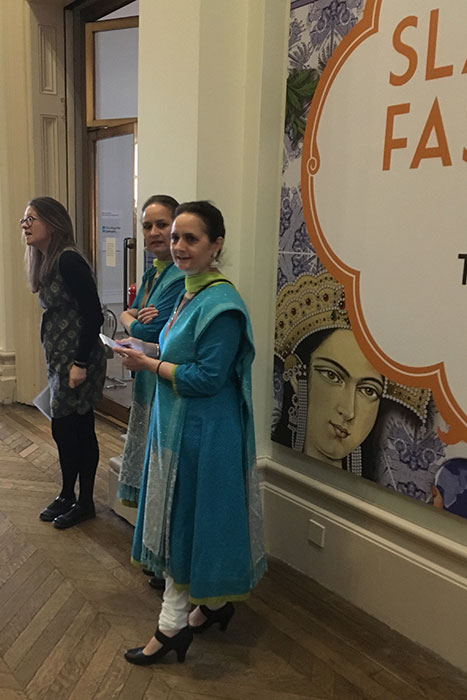
The day started with a guided tour of the exhibition Slaves of Fashion, given by The Singh Twins themselves. It was lovely to hear the reasons behind each artwork and the research that was put into developing each piece. The story of the exhibition is, as the name suggests, fashion and how it was involved in slavery and, sadly, still is. The Singh Twins got the inspiration from a trip to France, where they found out while visiting a Slavery Museum that Indian Fabrics were traded for African slaves. It was a surprise for them, as I imagine is for most people, as is not a part of history widely known in the west.
Each painting has lots of hidden messages, as every detail of the paintings having its own meaning. The tour lasted for 1 hour and a half, but I didn’t realize how time went by. It was very interesting. I can’t wait to visit the exhibition again and spend my time looking at each artwork.
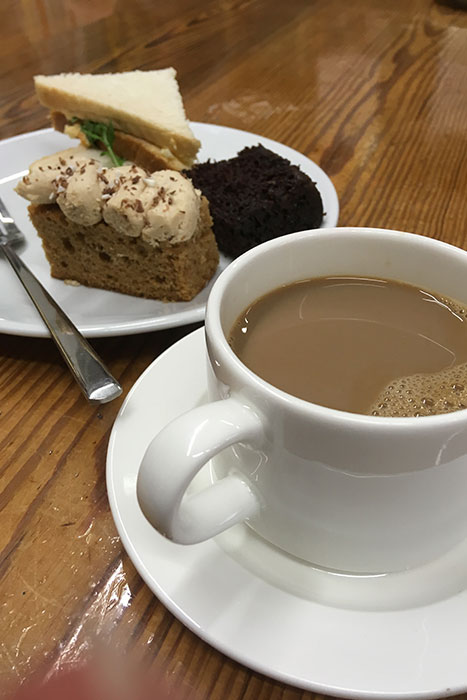
After the tour, we had a light lunch (yes, two pieces of cake, but only one sandwich) and coffee. It was lovely to have a chat with others attendants at the conference. We’ve discussed about art, favourite museums in London, the newly opened Terracotta Warriors special exhibition. We didn’t even feel how time went by, chatting about these interesting subjects.
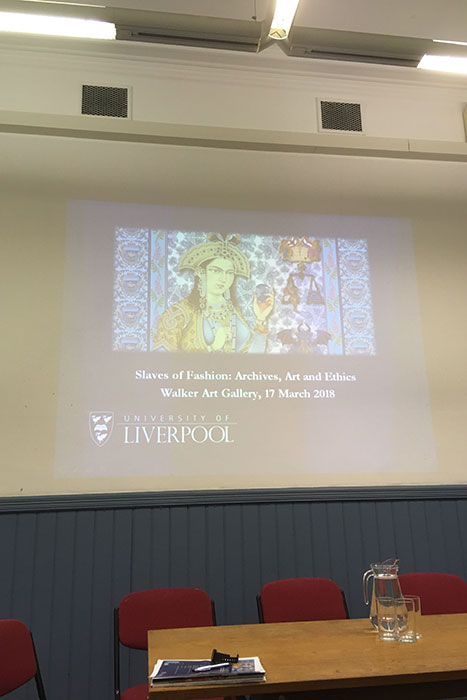
Next on the program was a trio of talks. First one was given by Professor Kate Marsh from the University of Liverpool, with the focus on the historical aspects. It was interesting. The second talk was given by Zachary Kingdon, curator of the Africa collections in the World Museum, Liverpool. He shared many pictures with different artifacts donated to Liverpool Museums.
Joanna Long, founder of the Ethical Consumer Organisation, gave the last talk. I found it thought provoking. She focused on palm oil and cotton.
My first impulse is to boycott. In the past, I didn’t buy frankincense, it was an ingredient in a face cream I was happy with, before discovering the problems behind over-harvesting. I also don’t buy real leather or bone china for ethical reasons.
Last year I stopped buying everyday products that contain palm oil, as it has a big impact on the wildlife through loss of habitat, mainly orangutans. But, now that I know that palm is a high wield crop, I’m not so sure I’ve done the right thing. To produce the same amount of oil from other crops would mean more deforestation. I think the better option is to buy products that use palm from sustainable sources. In their work, The Singh Twins, showcase the issue of palm oil and they make references to specific companies that use oils from companies that use deforestation and land grabbing to have more land for their crops. If you are wondering, companies that are involved include Knorr, Cadbury and others we find on the supermarket shelves.
The second crop discussed by Joanna was cotton. I think most of us know that pesticides are used in non-organic cotton products. But, most likely like me, you might not have any idea that 16% of all pesticides used worldwide are used in cotton crops. I will buy organic cotton or alternatives if is too expensive from now on. Another problem with cotton is the slavery that exists today. Each year the government forces over 1 million people to work in cotton fields, including children and highly trained professionals, like doctors and teachers. One of those countries is Uzbekistan, read more about that if you want to see how the clothes you are buying are produced.
I know I don’t want to be a part of this, so I’m going to buy organic and fairtrade. I would rather have one or two T-shirts instead of 4, but knowing that the choices I’ve made didn’t cause anybody to work as, practically, a slave.
The talks were followed by a tea/coffee break. It was a chance to talk with other people and it was so interesting again. We’ve talked about travel and migration (and Brexit).
The conference ended with an hour of panel discussions and Q&A. I did enjoy it a lot.
The Slaves of Fashion exhibition is opened until 20th May. I will post an article about it. After that, the exhibition will go on a tour to Wolverhampton Art Gallery from 21 July to 16 September 2018.

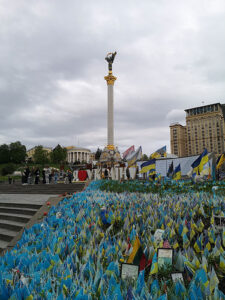



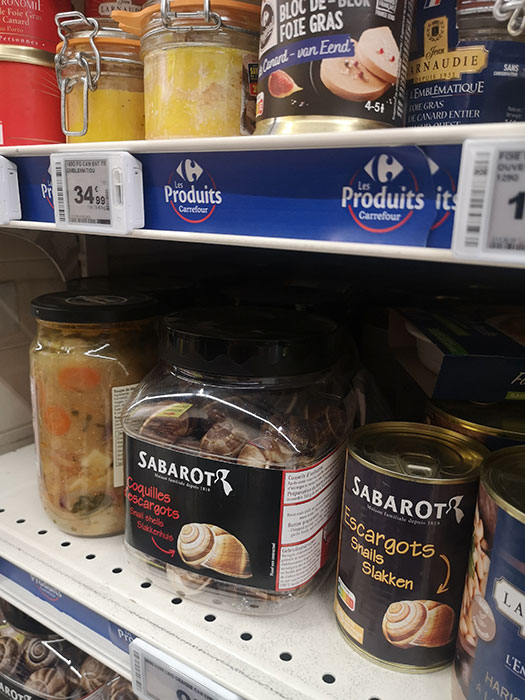

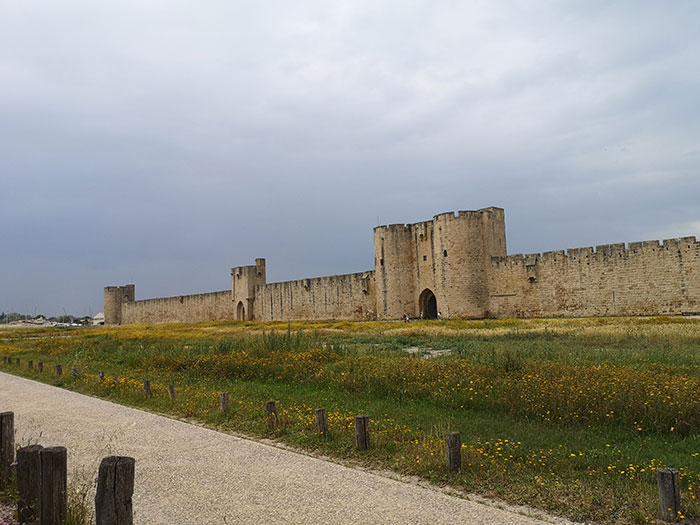
This looks like a really good day out, especially as it ended in cake! it is sad that we don’t think about slavery when we buy our clothes but many of the UK factories are in third world countries and the working conditions are so poor there.
I hadn’t realised that palm oil wasn’t just a bad thing before. Like you I’ve been trying to avoid it, but it seems that’s not really the full solution. I do like the sound of the exhibition and I think I will go to see it when it comes onto Wolverhampton.